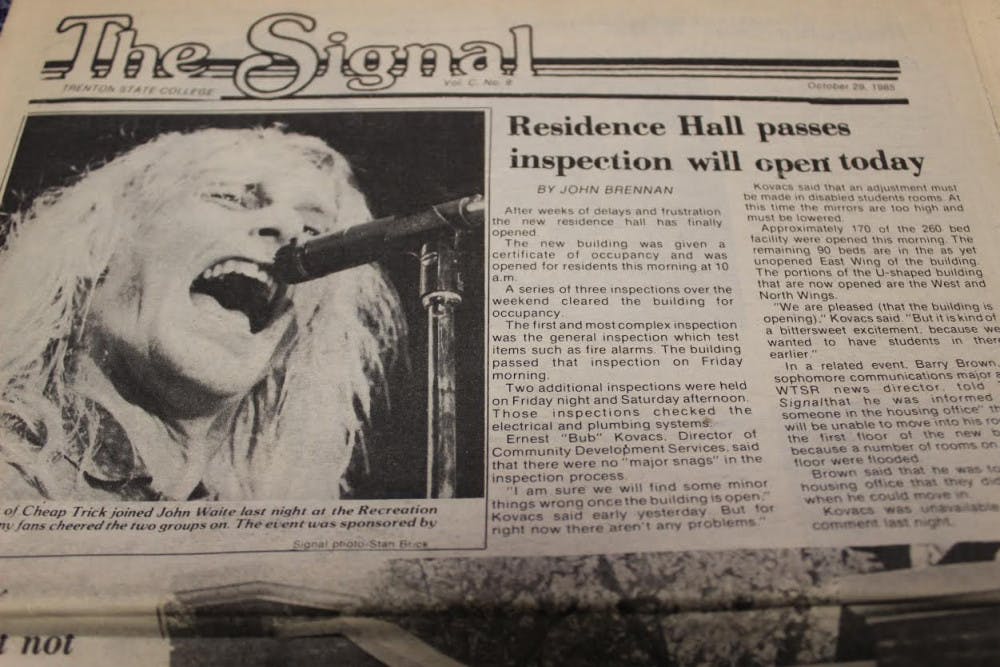By Kimberly Ilkowski
Features Editor

This year, The Signal enters its 130th year of publication. To celebrate the occasion, we’ve wiped the dust off of Signals past and uncovered some of the most notable events through the College’s history.
In the Oct. 29, 1985, issue, Jim Schwartz of the College Press Service, wrote about a Supreme Court’s decision that could have changed living in dormitories on campus as we know it.
“Despite some negative input from a college president last week, Congress seems ready to pass a law forcing most college programs to treat male and female students equally.
The bill, actually called the Civil Rights Restoration Act, would overrule a 1984 decision that excused many college departments from having to pledge not to discriminate women.
But some administrators and apparently some students as well worry the measure would let the federal government “interfere” in campus programs.
“It sounds like a new fear to me,” says congressional aid Kris McManiman. “We get students calling up from Baptist colleges asking if (they’re) going to have to room with a man.”
“We want to protect our independence,” Charles MacKenzie, president of Grove City College (Pa.), told Congress in hearings last week. “The government at some point may want to impose their secular values on our campus.”
The bill’s sponsor say they only want to give college women a legal tool with which to challenge discrimination, which a court — not the government — would then treat.
Last week’s hearing only continued a debate that began when Congress approved Title IX of the Higher Education Amendments of 1972.
Title IX, of course, bars colleges that take federal money from discriminating on the basis of gender.
Many women’s groups say Title IX provided the legal tool to open admissions to certain degree programs to women, gain more resources for female students’ scholarship programs and even funnel money into women’s sports teams and facilities.
Several schools — the University of Richmond, Hilsdale College and Grove City College among them have gone to court to escape the law.
They’ve argued Title IX should not cover whole colleges, but only programs that get or use the federal government’s money. Grove City asserted the government simply should leave campus programs to campus administrators to run.
“We do not want to accept the principle of federal jurisdiction,” Mackenzie told Congress last week.
It was Grove City’s legal challenge to the jurisdiction that made it to the Supreme Court last year. The court ruled Title IX applied only to programs that directly got federal money, not to all programs on a campus that took some kind of federal aid.”
Here’s to another 130 years and more reflections on the College's past.








